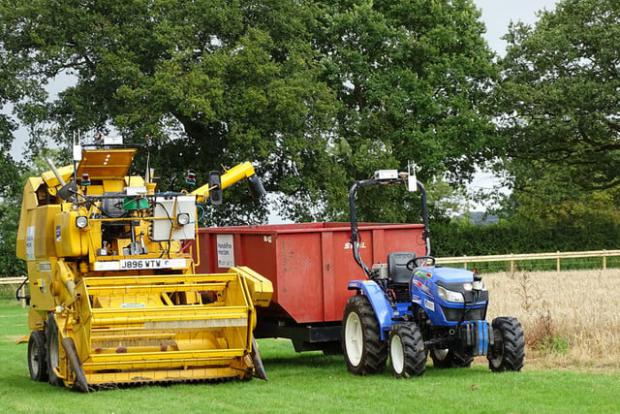
Breaking News
6.5x55 Swedish vs. 6.5 Creedmoor: The New 6.5mm Hotness
Best 7mm PRC Ammo: Hunting and Long-Distance Target Shooting
 Christmas Truce of 1914, World War I - For Sharing, For Peace
Christmas Truce of 1914, World War I - For Sharing, For Peace
Top Tech News
 EngineAI T800: Born to Disrupt! #EngineAI #robotics #newtechnology #newproduct
EngineAI T800: Born to Disrupt! #EngineAI #robotics #newtechnology #newproduct
 This Silicon Anode Breakthrough Could Mark A Turning Point For EV Batteries [Update]
This Silicon Anode Breakthrough Could Mark A Turning Point For EV Batteries [Update]
 Travel gadget promises to dry and iron your clothes – totally hands-free
Travel gadget promises to dry and iron your clothes – totally hands-free
 Perfect Aircrete, Kitchen Ingredients.
Perfect Aircrete, Kitchen Ingredients.
 Futuristic pixel-raising display lets you feel what's onscreen
Futuristic pixel-raising display lets you feel what's onscreen
 Cutting-Edge Facility Generates Pure Water and Hydrogen Fuel from Seawater for Mere Pennies
Cutting-Edge Facility Generates Pure Water and Hydrogen Fuel from Seawater for Mere Pennies
 This tiny dev board is packed with features for ambitious makers
This tiny dev board is packed with features for ambitious makers
 Scientists Discover Gel to Regrow Tooth Enamel
Scientists Discover Gel to Regrow Tooth Enamel
 Vitamin C and Dandelion Root Killing Cancer Cells -- as Former CDC Director Calls for COVID-19...
Vitamin C and Dandelion Root Killing Cancer Cells -- as Former CDC Director Calls for COVID-19...
 Galactic Brain: US firm plans space-based data centers, power grid to challenge China
Galactic Brain: US firm plans space-based data centers, power grid to challenge China
ROBOT FARMERS HAVE SUCCESSFULLY PLANTED AND HARVESTED BARLEY...

Humans have been cultivating plants for some 10,000 years and, for much of that time, we've used beasts of burden to help tend the fields. Just last century, humans turned from animal strength to machine power, leading to huge leaps in agricultural efficiency and scale. Over the past few years, farms have deployed emerging technologies like drones and autonomous driving systems to make the farmers' job even less strenuous — but human hands were still needed throughout the process.
Now, researchers at Harper Adams University and agricultural company Precision Decisions have removed humans from the farm entirely in a project called Hands Free Hectare. From planting to tending and harvesting, no human stepped foot on the acre and a half barley farm in rural England. It was all done by robot farmers.
"There's been a focus in recent years on making farming more precise, but the larger machines that we're using are not compatible with this method of working," Jonathan Gill, one of the researchers involved in the project, said in a statement. "They're also so heavy that they're damaging farmers' soils. If combines in the future were similar to the size of the combine we used in this project, which was a little 'Sampo combine' with a header unit of only two meters, it would allow more precise yield maps to be created. They would also be much lighter machines."

 The State's Last Stand
The State's Last Stand


